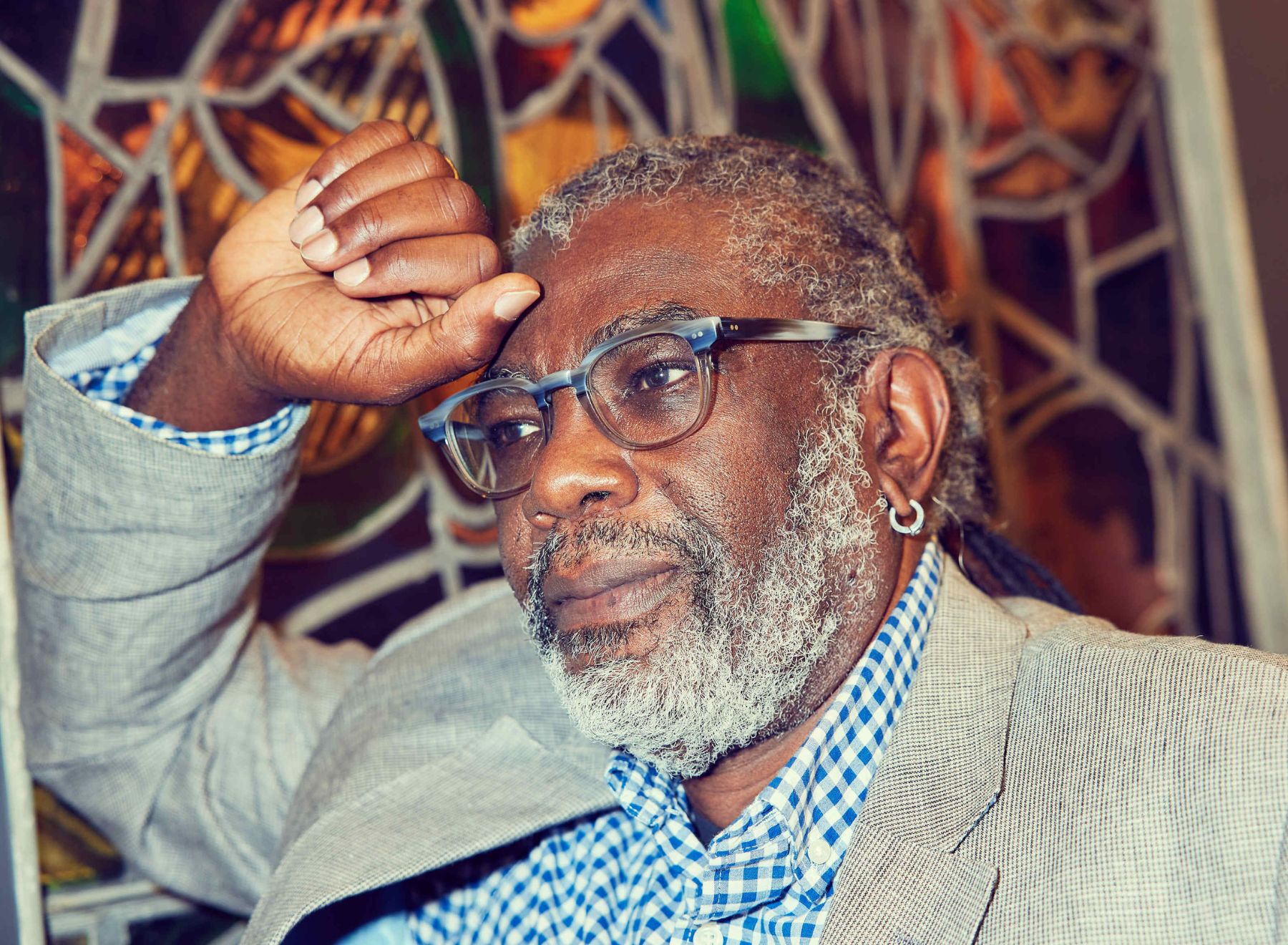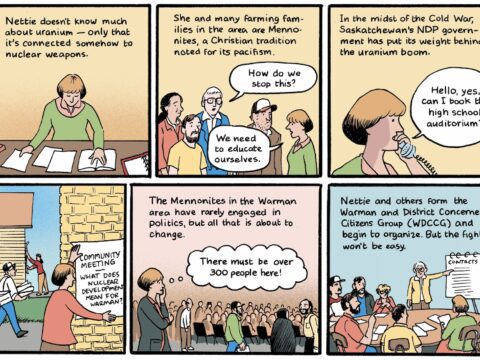The United Church of Canada is shrinking rapidly, but its national office is rolling out an ambitious new plan in hopes of charting a different course.
Approved by the General Council Executive on Nov. 18, the strategic operational plan promises to create 100 new communities of faith — with a special focus on migrant churches.
You may unsubscribe from any of our newsletters at any time.
“We’re going to lead with a growth perspective,” Rev. Michael Blair, the United Church’s general secretary, told Broadview.
In addition to building migrant communities of faith — and through calibrating demographic information and community needs — the plan will target other key sectors of the population, including francophones, young adults, people with disabilities and intercultural communities. The national office also intends to work with the Indigenous Church to invest in growth animators, with an eye to launching church plants and online ministries. Strategies of experimentation and collaborative outreach with communities will be front and centre.
The strategic operational plan aims to guide the denomination’s work for the next three years. Blair said that the plan also pledges to renew existing communities of faith and to strengthen the institutional church’s invitation to the public.
Along the way, it will be guided by other tenets, like climate change, leadership and the common good, but growth is the overarching goal.
The hope is to turn around a trend of steep decline. According to data released on Oct. 26, the latest census shows that United Church affiliation, at 3.3 percent of the Canadian population in 2021, has dropped sharply in the last decade, down from 6.2 percent in 2011. That means that 1.2 million people claimed United Church affiliation last year, compared to roughly two million people in 2011.
“We’ve never seen it as stark as these numbers have put it,” Blair said. But he also insisted that the numbers “aren’t surprising,” stating that there has always been a gulf between active members and those claiming affiliation. The United Church had just under 400,000 members on the books in 2019.
The figures relating to affiliation are likely “more realistic now,” he added, noting that many of the people who claim affiliation may not have attended a United church in many years. He also said he thinks that some don’t want to claim affiliation with the United Church after findings of unmarked graves were announced in June 2021 and that deaths from COVID-19 may have affected the numbers.
The strategic operational plan — to be put in effect between 2023 and 2025 — was in the cards well before the census data was out. In 2021, General Council staff set a “call and vision,” followed by strategic objectives.
The plan’s progress will be monitored monthly, with set benchmarks and quarterly key results.
On Nov. 19, the General Council Executive approved a recommended deficit operating budget for 2023 to the tune of up to $4 million — with up to $1.5 million per year being invested in the plan.
Blair is planning to direct some of those funds to sharing the news of the church beyond its own dwindling membership. The United Church needs to invite those who have left the denomination to reconsider it as an option, he said, adding that it’s more relevant today than it was in the past.
More on Broadview:
- Multimillion-dollar bequest boosts United Church of Canada finances
- Emmanuel College’s new principal on her big vision for the theological school
- The United Church of Canada is healthier than most people think: Brian Arthur Brown
A recent communications audit of the General Council office revealed that “90-plus percentage of our communication is to ourselves,” he shared. He wants the church to focus on telling its stories to a broader public that is often wholly unaware of what the denomination is about.
Some of the early initiatives emerging out of the strategic plan will also focus on responding to a perceived immigrant need for community. The United Church of Canada is building connections to the United Zimbabwean Methodist Church, for example, and looking to support a new church plant underway in Yellowknife, says Emo Yango, identity and mission network coordinator for the General Council office.
Other cross-country initiatives are also in the works, with plans to roll out the welcome mat for Hong Kong and francophone African immigrants, among others, on the lookout for a church home.
Éric Daly-Hebert, General Council’s head of French ministries, cites La Mission Protestante Francophone de Toronto in the north end of Toronto as modelling what the strategic plan is hoping to achieve elsewhere in the country. “It’s not the shortest name in the world, but it captures the essence of what is necessary to be a landing place for a lot of francophone African migrants,” he said. “And that’s because it’s a soft landing place. It’s a safe, linguistically and culturally relevant place when they’re surrounded by what’s foreign to them.” The community of faith didn’t exist five years ago, he adds, but it’s now seeing between 80 and 100 people on a Sunday morning.
Blair is hedging the success of the plan on the continued growth of Canada’s immigrant populations. While the recent census didn’t parse the data on religious affiliation according to race or ethnicity, it reported growth among all racialized groups in Canada — with South Asian, Black and Chinese people representing roughly 16 percent of the country’s population in 2021.
“You have this influx of people from other parts of the world who faith still means something to them,” Blair said, adding that the plan will be “inviting them to consider the United Church in new ways. There’s some creative thinking we’re doing around that.”
Rather than view the precipitous decline in affiliation as sounding a death knell for the church, Blair is treating it as an opportunity.
“Being church requires lots more flexibility, lots more trying to figure things out rather than we know what’s happening,” he says, “And so I think in some ways, the decline is a wake-up call to the church to reimagine what it means to be church,” Blair says.
With files from Emma Prestwich
***
Julie McGonegal is an associate editor at Broadview.
















Psalm 31 verse 15
My times are in thy hand: deliver me from the hand of my enemies, and from them that persecute me.
Situating atheist, self loving, self interested, “spiritual” leaders with inferior education, positioned by the office of vocation in the pulpits, who are driving people from the churches to clear the churches of believers. This activation is to enable the sale of properties and assets. The facilitation and growth of dubious “faith” groups that do not teach, learn or activate the teachings of our Lord and Saviour Jesus Christ, shall inherit the wind.
There are many organizations offering participation in such activities as social justice, climate change, acknowledgement of indigenous rights. What does the United Church UNIQUELY offer in this regard?
On the other hand, many young people are seeking help understanding meaning in life, making sense of the world (is God really in charge), comprehending why there is such massive evil ongoing in the world, finding out what we can now reliably know of Jesus and his teachings, handling life’s transitions, and pondering the meaning of death and the like.
“The church requires a lot more flexibility.” I agree. But how does a church attract those who grew up in a fundamentalist environment as well as those, like me, who are left wing liberals and all those in between? I’ve seen and heard the theological arguments of the “educated” who take the simple message of Jesus and turn it into something so convoluted that a simple person has a difficult time trying to figure out what it means to be a Christian.
In a confirmation class a young girl asked me if Jesus could be female. I answered “why not?” And by that I meant that we can all choose to live by the message of Jesus which includes love, compassion, forgiveness, acceptance and the positive things we have to offer to our spiritual community. But for some, it is strictly about belief and creeds. How does the institutional church bridge the gap, because it is great? For me, it’s the teaching and the living of it that matters combined with one’s sense of spirituality. For others it’s a matter of going through the motions they were taught as kids and believing literally what is written. I feel the church has a great task on its hands but hopefully it will open itself to that which is good and uplifting and positive rather than being critical of those who see the gospel story differently.
“through calibrating demographic information and community needs” and “strategies of experimentation”. Yeah that’ll work. And all the rest of the social work and corporate speak.
It is to cry.
All congregations growing in municipalities and cities could consider investing heavily in member engagement and inclusive evangelism.
Churches need a determined and focused program for recruiting new interested converts, nurturing new members, and building a strong volunteer force. Modernizing clicks-and-mortar and bricks-and-mortar church assets is essential to attracting people.
If each church took an honest inventory of its members and adherents, including how many are committed attendees, givers, and volunteers, it would likely see that far less than half of able-bodied members are actually volunteering and tithing adequately (which can look very different depending on each individual/family’s circumstances).
Suppose people walk into United churches on Sundays to see less than one-quarter of the pews filled, mostly older Caucasian members (located in very multicultural neighborhoods). In that case, it leaves a wrong impression of church priorities.
If no one cares, why should they?
Sometimes when I look around my congregation, I think my funeral will be in a Anglican church, because by then, there will be no one left in the congregation. But a few weeks ago, I was taking a group of small town high school students on a field trip, and as the bus went by St. Andrew’s Wesley in Vancouver, a student called out, excitedly, “that’s the gay church!” Smiles all around. We had just seen the gender bending Twelfth Night at Bard on the Beach. I thought, some kids do know about us. But why don’t they come?